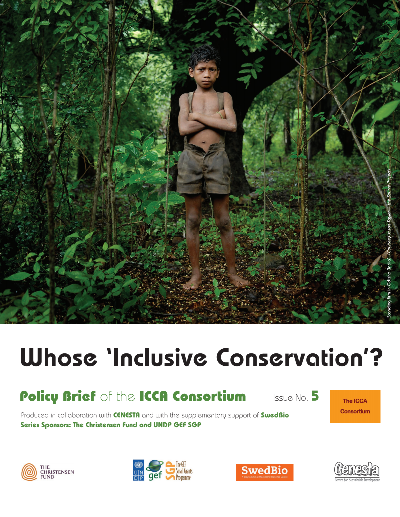First published on 11/03/2018, and last updated on 11/18/2019
Farvar, M. T. and G. Borrini-Feyerabend, J. Campese, T. Jaeger, H. Jonas and S. Stevens, 2018. Whose ‘Inclusive Conservation’? Policy Brief of the ICCA Consortium no. 5. The ICCA Consortium and Cenesta. Tehran.
There are widely divergent views of what ‘conservation’ is and should be and, likewise, by and for whom it should be undertaken. The term ‘inclusive conservation’ has recently been adopted by the Global Environment Facility (GEF) in its 2018-2020 programme for biodiversity financing.
In this context, the ICCA Consortium proposes here a definition of ‘inclusive conservation’ and specific recommendations for legislators, policy makers and other conservation actors willing to pursue it.
The Brief starts with an introductory description of ICCAs-territories of life— crucial components in inclusive conservation systems compatible with the wellbeing of people. As nature is being diminished under the combined pressures of widespread habitat loss and degradation, pollution and climate change, and as communities are driven off their lands in great part by the same processes that are overwhelming ecosystems, it is increasingly clear that a crucial capacity for conserving nature and the wellbeing of people is the capacity of indigenous peoples and local communities to govern and manage their territories of life. This capacity may remain viable and even match the huge current need to regenerate ecosystems if it will receive the appropriate recognition and support it deserves… making ‘inclusive conservation’ as meaningful as it can be for satisfying livelihoods and vibrant cultural and biological diversity on our planet.
